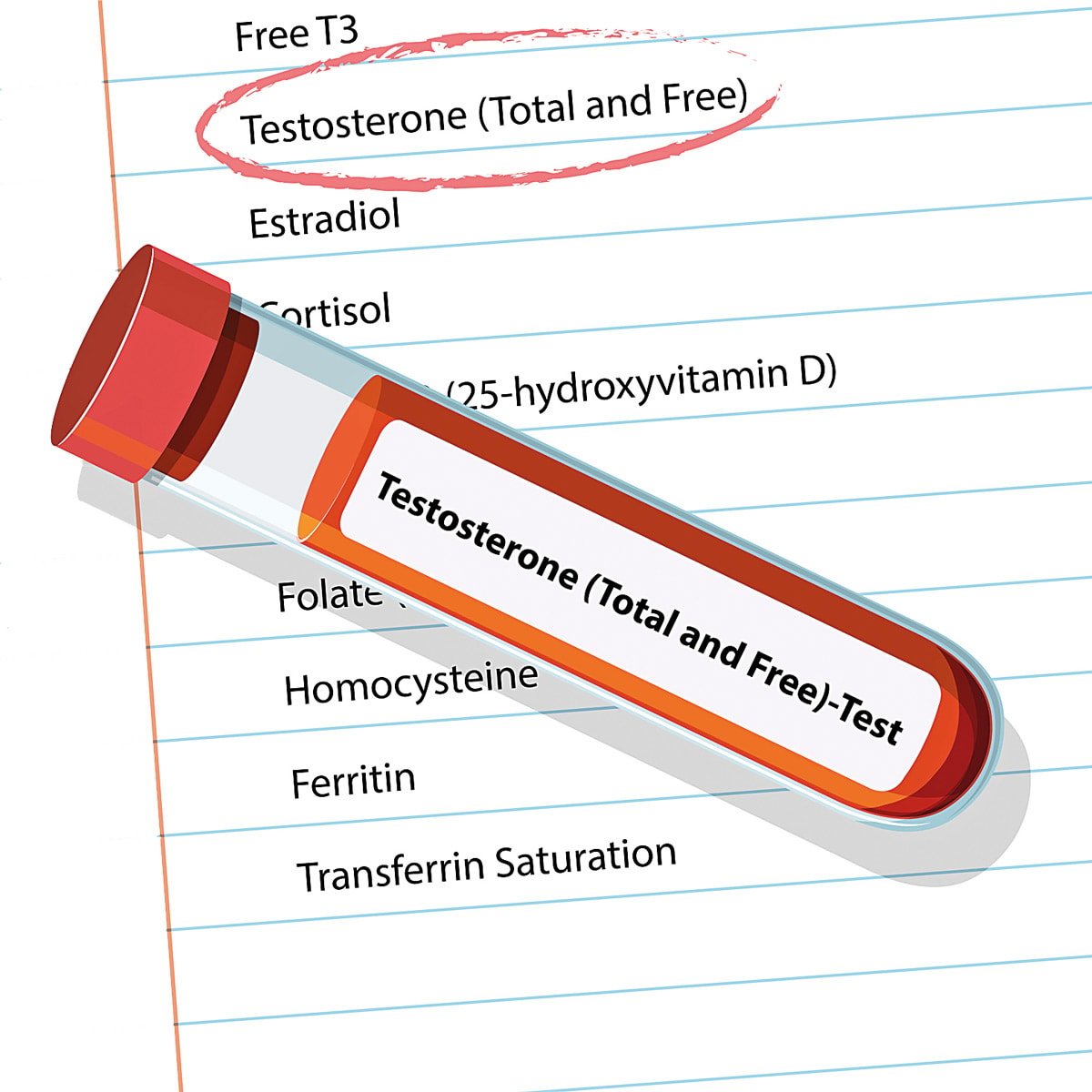Low testosterone: The shadow of men's health

More than libido: What is testosterone?
Testosterone is the primary sex hormone for men. But it has a direct effect not only on sexual functions but also on muscle strength, energy levels, bone density, mood and metabolism. It reaches its highest levels in the body in the 20s and begins to decline by an average of 1-2% each year from the age of 30 onwards. In some men, this decline accelerates and turns into a medical condition called “hypogonadism”. (Source: Mayo Clinic – Testosterone therapy: Potential benefits and risks)
When is a decrease considered a problem?If total testosterone is below 300 ng/dL in a morning blood test and the person experiences symptoms such as fatigue, depression, and lack of sexual desire, this is defined as “low testosterone.” However, the total value alone is not sufficient. Free testosterone levels should be evaluated together with hormones such as SHBG (sex hormone binding globulin), LH, and FSH. (Source: Endocrine Society Guidelines, 2018)
Antibiotics, painkillers, antidepressantsIt is not just blood pressure and cholesterol medications that affect testosterone. Some antibiotics (such as ketoconazole), opioid painkillers (morphine, tramadol), SSRI-type antidepressants, and medications containing cortisone can also suppress testosterone production. Hormone levels of these medications should be monitored during long-term use. (Source: BMJ Open – Drugs and Endocrine Disruption, 2021)
Should low testosterone be treated?Not every low testosterone level necessarily requires treatment. However, if a person is experiencing a significant decrease in their quality of life, testosterone replacement therapy (injection, gel, patch) may be considered under the supervision of a doctor. The main goal of treatment is to improve quality of life, not hormone levels. (Source: Endocrine Society Clinical Practice Guidelines)
Result: Quiet fall, big impact
Low testosterone is often overlooked in men's health. However, hormone levels should definitely be examined in men who present with symptoms such as fatigue, muscle loss, and mood swings. In addition, the effects of the drugs used on hormone balance should be taken into consideration; if necessary, the dose and drug selection should be replanned.
Libido and testosterone are not the sameA decrease in sexual desire cannot always be explained by a lack of testosterone. Stress, depression, sleep disorders, partner problems and other illnesses also determine libido. When diagnosing low testosterone, not only sexual symptoms but also general physical and mental symptoms should be taken into consideration. (Source: Harvard Men's Health Watch, 2022)
The most at-risk group: Chronic patients over the age of 50Men with chronic diseases such as blood pressure, cholesterol, and diabetes may experience a significant decrease in testosterone levels, both due to the diseases themselves and the medications used. In addition, with age, both muscle mass decreases and testosterone production slows down. This triggers the symptoms of andropause, also known as “male menopause.” (Source: European Urology – Age-related hormonal decline in men)

Statin group drugs (atorvastatin, rosuvastatin, simvastatin) can lower cholesterol while also suppressing testosterone levels. Because the raw material of testosterone is cholesterol. However, this effect is not evident in every patient. While statins metabolized by the liver, such as atorvastatin, can slightly reduce testosterone synthesis; cholesterol drugs that block intestinal absorption, such as ezetimibe, may not have this effect. In other words, the active ingredient and site of action of the drug are the determining factors. (Source: Journal of Sexual Medicine, 2021; Statin Use and Hormone Levels)
Do blood pressure medications affect male hormones?Yes, some blood pressure medications can indirectly lower testosterone (male hormone) levels. Particularly beta blockers (for example: metoprolol) can cause both decreased sexual desire and erectile dysfunction. Again, commonly used ACE inhibitors (for example: enalapril) and calcium channel blockers (for example: amlodipine) can also have this effect. Some blood pressure medications cause zinc to be removed from the body. Zinc deficiency also reduces testosterone production. In other words, if you say, “The medications I used for my blood pressure were good for me, but I have been feeling weak and unmotivated for a while,” these medications may have an effect. In this case, instead of stopping the medication on your own, it would be useful to consult your doctor and have a hormone test. (Source: American Journal of Hypertension, 2020)
Why isn't everyone affected in the same way?Two people taking the same blood pressure or cholesterol medication may experience different side effects. This is because of the way the body processes the medication. There are special “cleaning” enzymes in the liver. These enzymes break down the medication and eliminate it from the body. But these enzymes work differently in each person. Some break down the medication very quickly, while others do so slowly. Medications that break down slowly stay in the body longer and can have a greater effect on hormone balance. In addition, when a protein called SHBG is overproduced in some people, the level of active testosterone in the body decreases. In other words, it is not just the total amount of hormone that is important, but also how the body uses it. (Source: Cleveland Clinic – Hormone binding and metabolism pathways)
Tomorrow:- How does excess weight suppress testosterone? - How does losing weight affect hormones? - Eating meat or soy? - Which foods support at what age?
SÖZCÜ



